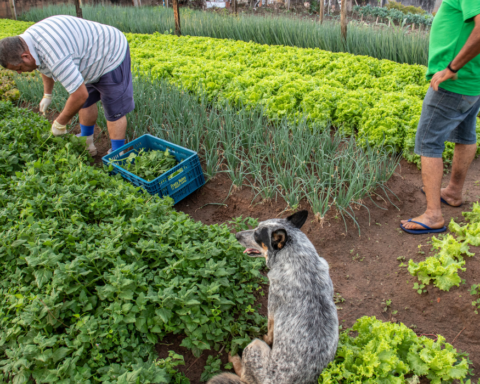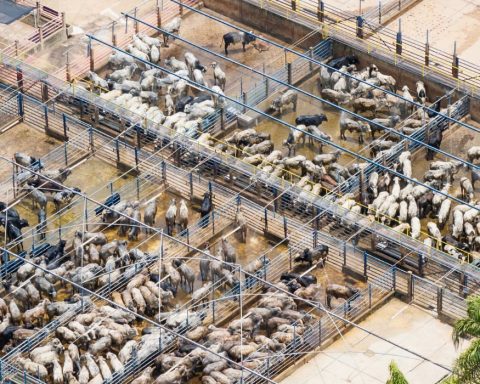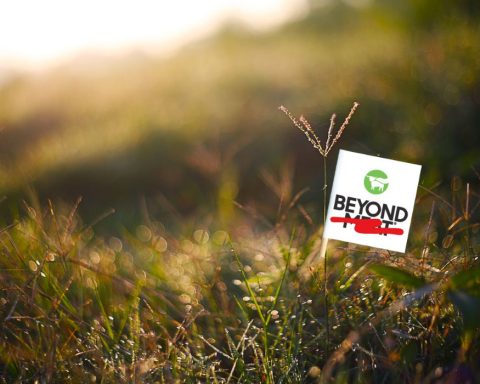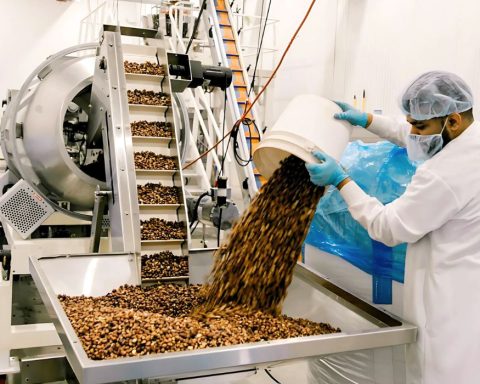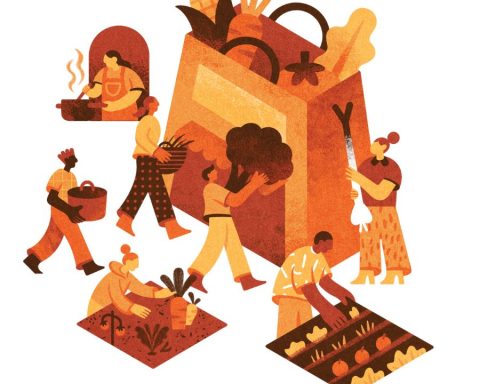On March 29, when much of the news cycle was focused on the third wave of the COVID-19 pandemic, the Retail Council of Canada (RCC) quietly published a memo announcing that it and its grocery partners were backtracking on past commitments made to improve animal welfare in their pork and egg supply chains.
RCC – which represents more than 45,000 storefront retail businesses, including major grocery chains Loblaws, Walmart and Sobeys – had in 2013 pledged to phase out gestation crates for pregnant pigs by 2022, and in 2016 declared it would source only cage-free eggs by 2025. In the recent announcement, RCC stated it was “renewing [its] focus on animal welfare” and planned to “pursue and make commitments solely through NFACC [the National Farm Animal Care Council] thus removing previous commitments on sow housing and cage-free eggs.” Meaning, RCC grocery members will no longer be endeavouring to source only cage-free eggs and crate-free pork in the near future.
According to the Loblaws website, since the commitment was made the company has “worked with our suppliers to achieve these targets. Unfortunately, it has become clear that our farmer partners are unable to meet these timelines.”
Kaitlyn Mitchell, an animal rights lawyer with Canadian organization Animal Justice, says “RCC’s decision to backtrack on its commitments will make a bad situation even worse for farmed animals in Canada.”
“Farmed animals in Canada are subjected to cruel practices that would not be allowed in many other jurisdictions, including confining pregnant pigs in tiny gestation crates and keeping egg laying hens in crowded battery cages.” Battery cages are banned in the EU, New Zealand and several U.S. states. However, Humane Canada reports that approximately 90% of egg-laying hens are currently held in battery cages in Canada. Gestation crates, which keep pregnant sows in cages so small they’re unable to turn around, have also been banned in several U.S. states, as well as in the U.K. and Sweden. NFACC recently announced a delay in its commitment to phase out gestation crates, slated for 2024, now pushed to 2029.
Polling shows Canadians are increasingly concerned about the welfare of animals raised for meat, eggs and dairy, with many consumers willing to pay more for products if it means reducing animal suffering. A 2013 survey conducted by Humane Society International Canada found that 82% of respondents wanted to see clearer labels on meat, dairy and egg products that indicate how animals are treated. A 2020 public trust survey conducted by the Canadian Centre for Food Integrity found that 39% of respondents identified humane treatment of farmed animals as an issue of “extreme” concern.
This concern is also evident in the market, with consumer demand for cage-free eggs increasing in recent years and a growing number of food companies making public promises to fully phase out cage confinement of egg-laying hens in their supply chains. Tim Hortons and Burger King, for example, have both committed to going cage-free in North America by 2025, and in the EU, McDonald’s has already reportedly gone 100% cage-free. Though A&W Canada stated in 2016 it planned to source only cage-free eggs by 2018, there is no mention of housing at all on the current “Eggs” section of A&W’s website.
Pig gestation crates have also come under mounting public scrutiny, leading to the world’s largest pork producer, American company Smithfield Foods, declaring in 2007 that it would phase out the practice. Nearly 15 years later, however, the company has yet to fulfill that commitment.
In a statement to Corporate Knights, Loblaws says it is proud of the progress the company has made regarding animal welfare, “including converting all President’s Choice shell eggs to cage-free and converting approximately 30% of fresh PC Free From pork to group housing for gestating sows,” but is also disappointed that previously made cage-free goals will not be reached “by the original target dates.”
Empty animal-welfare promises are not a good look for the food industry, says Sylvain Charlebois, a professor in food distribution and policy at Dalhousie University. “I don’t think the [RCC announcement] will support the industry well,” he says. “It will position the industry as not delivering on a promise” and could lead to consumers being skeptical of such commitments in the future. He adds that one Ontario hog producer informed him that not all hog farmers were on board with the crate-free commitment in the first place. But, he adds, “more and more people believe that we need to raise and produce food responsibly. That’s a fact and we need to respect that.”
Pigs and chickens are “intelligent, curious, social creatures … often forced to spend their entire lives in caged housing where they cannot even turn around,” said World Animal Protection in a statement. Colin Saravanamuttoo, executive director of the organization, added that RCC’s past commitment to phase out these concerning farming practices “signalled meaningful progress to how animals are raised in Canada, and reflect consumer expectations for humane farm animal treatment.” He said retailers should be leading the way and “pushing for positive change within the industry.”
The RCC said that since 2014, “the proportion of sows housed in group housing has more than tripled,” and since 2017, “the proportion of hens housed in alternative methods of egg production has more than doubled.” However, confining hens and pigs in small cages is permitted under the NFACC codes that RCC members will be focusing on going forward. NFACC codes are not laws, but rather voluntary codes of practice created and overseen by a variety of mainly industry stakeholders, including the Canadian Pork Council, Canadian Hatching Egg Producers, the Canadian Poultry and Egg Processors Council, and Restaurants Canada.
World Animal Protection and Humane Canada also have seats at the NFACC table; both have publicly called for RCC to reinstate its cage-free commitments.
NFACC codes also permit practices such as chick debeaking, culling live male chicks (a by-product of the egg industry) via macerator, euthanizing piglets by slamming their skulls into the ground, and the use of electric prods.
“Our current voluntary system is broken and is failing farmed animals as well as the Canadian public,” says Mitchell, who believes Canada needs “strong, proactively enforced laws to promote transparency and accountability.” She says RCC’s decision to backpedal on its cage and crate-free commitments “shows why we cannot rely on industries and consumer organizations to voluntarily take steps to protect farmed animals.”
RCC did not respond to requests for comment.
Jessica Scott-Reid is a freelance writer and animal advocate. She writes for major media across Canada and the U.S. She is also a co-host of Canada’s animal law podcast, Paw & Order, produced by Animal Justice.



